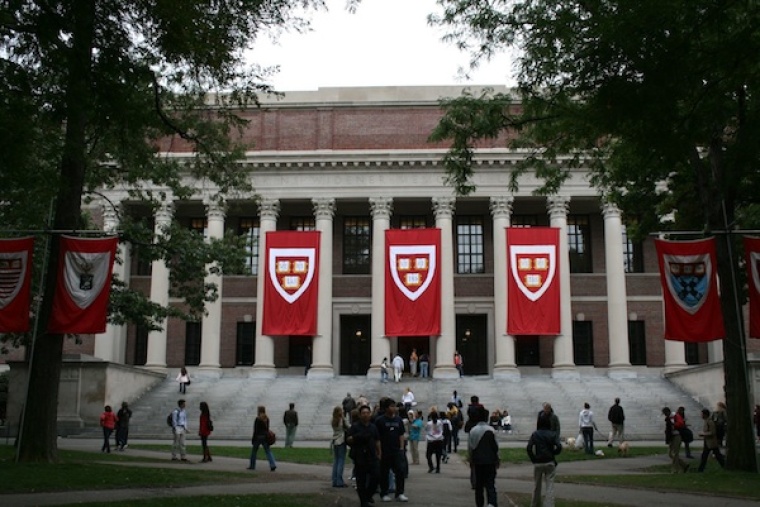A Harvard Law School professor’s assertion that homeschooling is dangerous for children and must either be heavily regulated or banned is wrong, says Home School Legal Defense Association attorney T.J. Schmidt.
In a recent interview with The Harvard Gazette, Elizabeth Bartholet, who’s also the faculty director of Harvard Law School’s Child Advocacy Program, elaborated on her view that homeschooling in the United States poses many dangers to children.
While Bartholet noted that the growth of homeschooling was partly fueled by conservative evangelicals who were unsuccessful in their battles with secular education in public schools, she also accused them of having bad motives. She said homeschooling parents are racist, misogynist, and “extreme ideologues” who are not adequately educating their children at home.
Bartholet blamed the homeschooling lobby for the lack of regulations in many states.
In an interview with The Christian Post, Schmidt of HSLDA said states do have regulations in places and parents who aren’t educating their children face penalties.
“While each state is different in how homeschooling is regulated, every state requires parents to ensure that children are being educated. And without exception, every state has penalties for failing to do so,” he said.
“There are extremely few cases of parents keeping their children home and not educating them. In these cases, there are many other problems occurring. And when a child is being neglected or abused in any way, every state can and should intervene on behalf of the child.”
Bartholet also blamed the homeschool lobby for what she sees as lax state regulations and laments that homeschooling parents have been successful at engaging and persuading lawmakers on the issue when new regulations are considered.
Homeschooling parents and advocates are indeed vigilant when it comes to state encroachment on home education, Schmidt said.
People often forget that in the 1980s and ’90s, parents were being prosecuted all over the country for teaching their own children without a state-approved teaching credential, Schmidt noted. HSLDA was instrumental in removing those restrictions.
“Homeschool families and advocates (local and state homeschool groups, HSLDA, lovers of school choice, etc.) often do respond when legislators introduce measures that seek to limit the flexibility and freedom of private home education. Homeschooling is most successful when parents, acting in the best interest of their child, are free to develop an individualized educational program best suited to the needs and abilities of their child,” Schmidt said.
“We believe that no one cares more for a child than their parent. However, HSLDA understands that the state does have a responsibility to ensure that a basic education is taking place to ensure that every individual is literate and self-sufficient.”
HSLDA’s position, he said, is that the state’s responsibility does not kick in unless the
parent is unwilling or unable to ensure these basic needs are met.
Bartholet contended that unregulated homeschooling endangers children because they are at risk of not learning basic academic skills. She argued that studies that show homeschool students perform just as well as kids in “regular schools” are “junk social science.”
Schmidt disagreed, arguing that government regulation can limit the creativity and flexibility that’s vital to homeschooling.
“No research has shown that increased regulation of home education has a significant effect on standardized test scores,” he said. “Research has shown that parental involvement is one of the main keys to academic success. Parents who want the best for their children and are willing to commit to educating them at home is what makes homeschooling successful. Government regulation often limits the creativity and flexibility that is so vital to homeschooling.”
Homeschooling, Schmidt said, offers flexibility where children can pursue their passion and interests while immersed in real life. He added that it’s centered around a “growth mindset” and a desire to ignite a love of learning instead of merely teaching to a standardized test.
In an earlier interview with Harvard magazine, Bartholet said homeschooling in its present form should be banned.
But after most public and private schools nationwide were closed and moved to online education in a home setting during the coronavirus pandemic, survey data has shown that an increasing number of parents are considering homeschooling after public schools reopen in the fall.
Additionally, one in five teachers said they’re unlikely to return to reopened classrooms this fall, according to a USA Today/Ipsos poll.
Bartholet has also criticized what she’s calls “parents’ rights absolutism” and wrote a piece published last June in the Arizona Law Review on the topic, titled “Homeschooling: Parent Rights Absolutism vs. Child Rights to Education & Protection.”
She told Harvard magazine, “The issue is, do we think that parents should have 24/7, essentially authoritarian control over their children from ages zero to 18?”
“I think that’s dangerous. I think it’s always dangerous to put powerful people in charge of the powerless, and to give the powerful ones total authority.”
Bartholet was scheduled to host an invite-only conference about homeschooling at Harvard this summer, but the event was canceled due to concerns about spreading the coronavirus.
Source: christianpost.com
